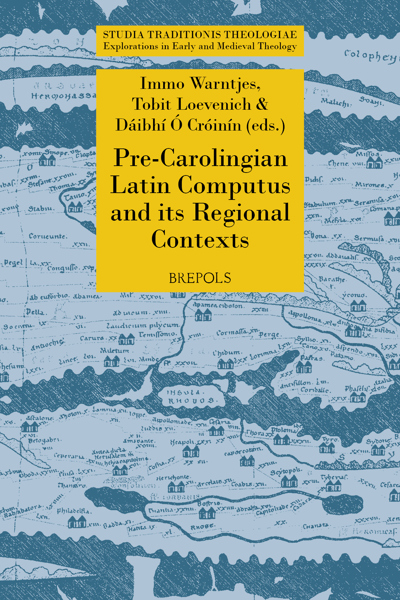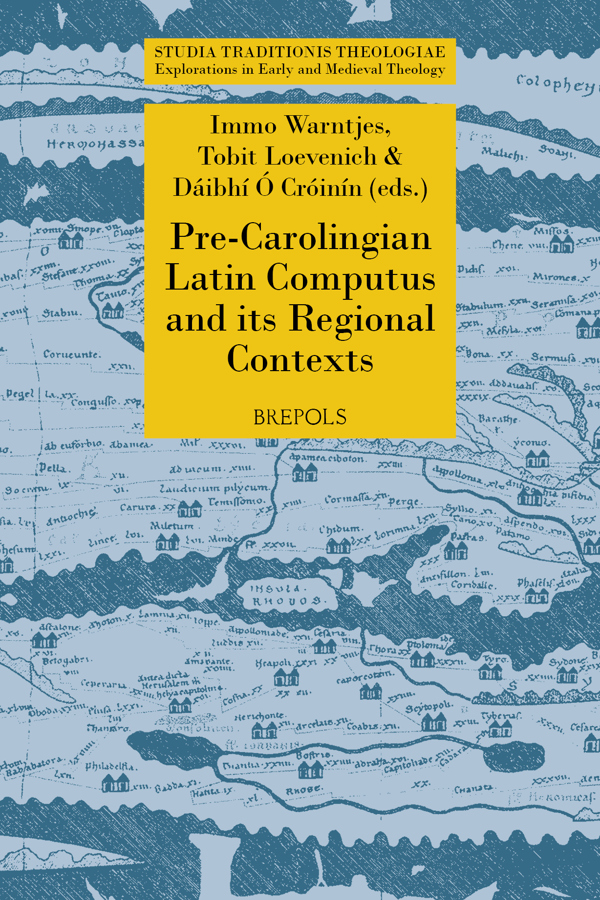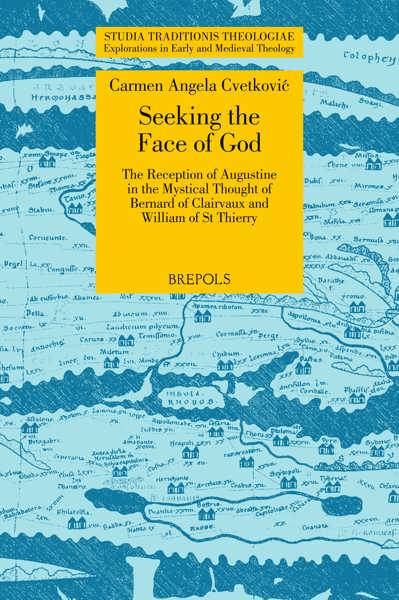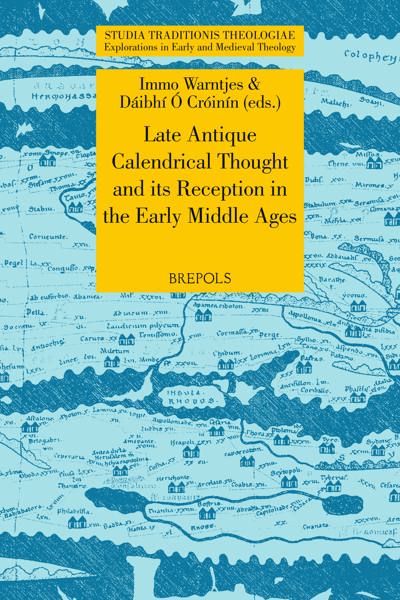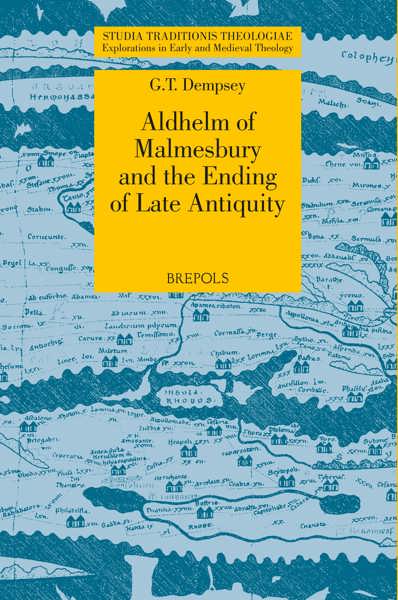
Pre-Carolingian Latin Computus and its Regional Contexts
Texts, Tables, and Debates
Immo Warntjes, Tobit Loevenich, Dáibhí Ó Cróinín (eds)
- Pages: 254 p.
- Size:156 x 234 mm
- Illustrations:7 b/w, 1 col., 8 tables b/w.
- Language(s):English
- Publication Year:2024
- € 70,00 EXCL. VAT RETAIL PRICE
- ISBN: 978-2-503-60556-2
- Paperback
- Available
- € 70,00 EXCL. VAT RETAIL PRICE
- ISBN: 978-2-503-60557-9
- E-book
- Available
This volume seeks to highlight the vibrancy and regional characteristics of the study of computus and its underlying controversy about the correct calculation of Easter in the transition period from Late Antiquity to the early Middle Ages, the mid-fifth to the mid-eighth centuries.
The period between the Fall of Rome and the rise of the Carolingians saw a major shift in knowledge production. Learning became monopolised by a Christian intellectual elite in a rapidly developing monastic landscape. This transition and transformation was only fully achieved by the time of Charlemagne, whose reign saw a ‘Carolingian Renaissance’ that re-created links to Late Antiquity and its curriculum, the seven liberal arts. The centuries in between, from the fifth to the eighth, are generally considered a time of stagnation in terms of intellectual achievements, particularly in the quadruvial arts. From Boethius to Alcuin, not a single noteworthy text was produced in the Latin West in astronomy, geometry, arithmetic, and music.
This traditional view has been challenged in recent years by highlighting that the artes liberales may not provide the appropriate lens for this time-period, and that it neglects the plentiful anonymous literature. By the seventh century, a decidedly Christian curriculum had developed principally comprising exegesis, grammar, and computus as its three key pillars. Computus (with the calculation of Easter and therewith the mathematical modelling of the course of the sun and the moon at its core) developed out of the Easter controvery into a discipline of monastic learning in its own right. This volume seeks to highlight the vibrancy and regional characteristics of the study of computus and its underlying controversy about the correct calculation of Easter in this transition period from the mid-fifth to the mid-eighth centuries.
The period between the Fall of Rome and the rise of the Carolingians saw a major shift in knowledge production. Learning became monopolised by a Christian intellectual elite in a rapidly developing monastic landscape. This transition and transformation was only fully achieved by the time of Charlemagne, whose reign saw a ‘Carolingian Renaissance’ that re-created links to Late Antiquity and its curriculum, the seven liberal arts. The centuries in between, from the fifth to the eighth, are generally considered a time of stagnation in terms of intellectual achievements, particularly in the quadruvial arts. From Boethius to Alcuin, not a single noteworthy text was produced in the Latin West in astronomy, geometry, arithmetic and music.
This traditional view has been challenged in recent years by highlighting that the artes liberales may not provide the appropriate lens for this time-period, and that it neglects the plentiful anonymous literature. By the seventh century, a decidedly Christian curriculum had developed principally comprising exegesis, grammar, and computus as its three key pillars. Computus (with the calculation of Easter and therewith the mathematical modelling of the course of the sun and the moon at its core) developed out of the Easter controversy into a discipline of monastic learning in its own right. This volume seeks to highlight the vibrancy and regional characteristics of the study of computus and its underlying controversy about the correct calculation of Easter in this transition period from the mid-fifth to the mid-eighth centuries.
Daniel Mc Carthy – The Zeitz paschal table of AD 447
Colin Ireland – How King Oswiu made Northumbria orthodox: the social and political background of the ‘Synod’ of Whitby (AD 664)
Leofranc Holford-Strevens – ‘If you find it, give thanks’: a problematic chapter of De temporum ratione
Immo Warntjes – A Visigothic Computus of AD 722
David Howlett – Irish computistical texts of the seventh century: three dating passages
James T. Palmer – Irish computistics in 8th-century Lombardy
C. Philipp E. Nothaft – Victorian survival in high medieval chronography: the strange case of the Angevin paschal chronicle
